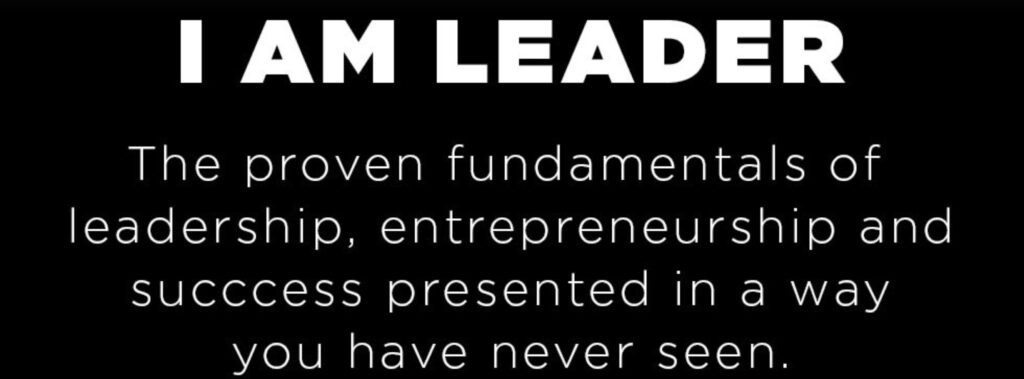We’ve probably all heard the term “quiet quitting” by now, and this workplace phenomenon has been spreading like wildfire. Well, it only seems to be getting worse. Because this has made irreparable impacts to the typical work office culture we’re all so accustomed to already. With the increasing popularity of quiet quitting and the great resignation, combating the great resignation has been a major problem for the labor force in all industries.
The Origins Of “The Great Resignation”
An Associate Professor from the University College of London (UCL), Dr. Anthony Klotz, coined the term “The Great Resignation.” This term predicts the dramatic drops in employment and the reasons why that he projected to last for at least the next 2-3 years. It’s time to combat the Great Resignation.
I interviewed Dr. Anthony Klotz. We discussed a lot of insightful topics. They range from how we can combat this Great Resignation, what separates leadership from management, and how we can inspire younger generations to want to enter our industry.

Welcoming Dr. Anthony Klotz!
Let’s get to know Dr. Anthony Klotz even more, where he came from, and his experiences. You’ll see how his insight pertains to our industry and helps the service department in combating the Great Resignation!
“What was it that sparked your interest in Organizational Psychology as a kid?“
“Most kids wouldn’t say they’re interested in management or leadership as children. But I grew up in a family business. It was a chain of heavy truck dealerships and truck stops. And I was always around my grandpa and my dad, who were managing in that environment. So I sort of always imagined that I would one day work in that family business. Oftentimes, I was thinking about leadership and interacting with the employees.”
“Then I went off to college and got a degree in business, but worked in a small BDC during that time. I was really just interested in the different ways that small businesses were led. After college, I went and worked for a large organization, a Fortune 100 company, manufacturing plants across North America, and I also worked in both union environments and non-union environments. And so I just had all these different management experiences.”
“After that Fortune 100 company, I went back into business with my best friend and opened a few collision centers. And it was during that time I got my MBA. I think after 20 years of being in management from a family business to a big company, I thought dedicating my time to thinking about management and coming up with these insights, and hopefully applying what I learned in the academic and real world would hopefully have a positive impact on managers out there. That would be a bigger impact than me being an individual manager or leader, at least in my profession.”
How To Combat The Great Resignation In The Auto Industry
Kids growing up just aren’t fixing cars on the weekend anymore. They’re not aspiring to be mechanics. And I think nationally, that’s something they’re not aspiring to be across the board. The same applies to plumbers and welders or anything that’s physical like that. Kids don’t like labor type jobs.
What do you think we could do as an industry to get more kids to want to come into our industry as mechanics?
“That’s a big challenge. And I don’t think there’s a silver bullet to fix it. But I do think there are some branding issues that could be fixed with some of these jobs. Especially when I think about the automotive repair industry, we’ve been using the term mechanics. Some say technicians, but increasingly, these jobs are really like project manager jobs or engineering jobs or craftspeople jobs.”
- Change Branding Of Technician’s Career
“So a number of individuals think, ‘I don’t want to work at a computer my entire life.’ Part of the great thing about these jobs, like a plumber or a mechanic, is at the end of the day, you can turn around and say, ‘I did that, like I had an impact.’ And there’s research that shows that’s motivating, as opposed to a lot of other jobs, where at the end of the day, you think that I actually do anything like these eight hours make a difference. And so I think part of it is a branding challenge.”
- Implement Recession-Proof Career Paths
“I think part of it also, especially as these dealership groups become larger, is that this is actually the start of a career in this great industry that’s a little bit recession proof as well. So you can come in as an entry level worker in the parts department or an entry level mechanic. And I could probably name 20 different career paths, which all end up in satisfaction or near or over six figure work that you can reach from that level.”
“But it’s not like, if you become the best mechanic in this system, you’re going to make a very healthy living. It’s more that if you decide like, ‘That’s actually not what I want to do. I want to do something more white collar yet we can transition.’ In fact, you can go do sales for a couple years, and then come back to being a mechanic or you can move into parts.”
- Cross-train Employees!
“Part of the advantage large organizations have is that they can cross train employees. And over the course of your career, you can move on to these different challenges. And so it’s not just like, if you’re a plumber, you’re probably going to be a plumber for most of your career. In the case of dealerships, I don’t think that’s the case. There are a lot of different elements. And for people who find business interesting, you can have this really rich career in these organizations. So there’s a career piece too.”
Interview Approach Is Critical For Combating The Great Resignation
What do you think is the most important part of hiring good employees? Is it past performance?
“What are your thoughts on that when you’re bringing in new people?”
“So the obvious thing about bringing in new people is that you can’t see how they performed. And if you’re an employee who’s applying for a new job you can’t see how that company treats its employees. So those are the two big goals that are there. Anything that gives you an accurate indication of how that individual performs on the job is a good thing. And this is why there’s testing centers that may have you do part of the job. There’s apprentice programs, there’s probation periods because you couldn’t look good in an interview, you can get nice rec letters. But interviews and rec letters are not very predictive of future performance. These do not help for combating the great resignation.”
“The most predictive thing of future performance is past performance. But it’s hard for us as hiring organizations to get at that. And so it’s really helpful if somehow you can get a sample of that employee’s work through some sort of testing center, or through a trusted reference. Again, references tend to be employee chosen and are super useful because of that.”
“Are there specific interview questions that we should ask?”
“When it comes to interview questions, this sort of all ties into how well you understand the job that your employees are doing. So when it comes to interview questions, you really need to understand the job that you’re hiring for while combating the great resignation.”
“Say it’s an entry level mechanic, you’ve been around mechanics and talk to them enough to know, so here are the elements that make a successful mechanic. And then in a job interview, you can say to that person, ‘Tell me about a time when you came across this problem. Let that candidate explain their thinking to you on how they solved that actual problem.’”
“What I would encourage you to do is to go to your best mechanic in the shop. And say, ‘If I give you this problem, how would you solve it?’ And you see how they solve it, and then you have the baseline for excellence. Then you can say, ‘Okay, if you didn’t know what you were doing, how would you solve this?’ And they can give you that answer. And then you sort of have a baseline for what a great answer should entail and for what an answer that somebody’s sort of faking their way through looks like.”
“Every interview question that you write, the answer should hopefully predict actual performance in the job. Maybe you’re hiring folks out of high school, and so they wouldn’t necessarily have experience, you can just give them a hypothetical scenario and say, ‘Imagine yourself in this situation.’ Again, what you’re looking for is not just an answer. You’re looking for the answer that your top performers have given you. Often when it comes to building a good interview, sit and watch what your best mechanics do and ask them about the problems they come across. So those become your standard for excellence, which you use to construct your interview questions.”
Talking About Turnover In Combating The Great Resignation
This all leads to a bigger question on the topic of turnover. Turnover approximately went from 3% to 30%. But the thing that I find in the conversation of turnover, is that it really depends on where you’re at, as a company.
For example, if I go into a company that’s losing $100,000 a month, I can tell you that in the first year, I’m probably going to have 50% or more turnover. But, if I go into a company that’s making money and is highly profitable, and they’re just looking for the slight edge, then there should be zero turnover. And so where a company is at in a performance aspect determines the amount of turnover in my experience.
“But what are your thoughts in relation to turnover?“
“I think it’s important and part of what you’re saying is, not all turnover is bad. That’s called functional turnover. There’s plenty of good turnover that happens. And that could be anybody who’s a low performer or who’s even an average performer but not improving. It’s not the worst thing to move on to a role that’s a better fit for their talents than where they’re currently at. Of course, when you walk into an organization that’s underperforming, it could be that it’s bad management. But it also could be that there’s just some individuals that are in roles that are not the best fit for them. It’s not their fault, it’s just a mismatch. And it happens in life.”
“Then you also sometimes see high turnover in the case of great leaders who really develop individuals and send them on to better roles. So you can’t just look at it and say, ‘this person must be a bad leader,’ because they’re losing individuals at a higher rate than these others. It could just be that they’re really great at developing them. And that’s part of their leadership style. And if they’re good at replacing them, then that’s fine. So I think it’s important to acknowledge that there’s functional turnover.”
“That’s why organizations have to take a deeper look at what goes on around the turnover event to ask, ‘Is this a regrettable loss?’ Or is it just part of the natural course of business, and we’re actually going to grow stronger through this loss. And in combating the great resignation, there’s been a lot of leaders who have said to me, ’The economy is going to start going downhill. And that means combating the great resignation will end.’ Because people won’t be able to quit their jobs. And we’re sort of seeing that now. And I say, ‘You’re absolutely right. But that doesn’t solve the problem for you.’”
“Because if we’re combating the great resignation, and let’s say 30% of your employees who want to leave, actually leave, that’s a problem. You don’t want to lose 30% of your employees. But let’s say 30% of your employees want to leave, but the economy is so bad, they can’t. So those 30% of employees who don’t like working for you keep working for you. That’s potentially a bigger problem. And so turnover isn’t necessarily a bad thing. There are healthy levels of turnover, which goes up and down.”
“Obviously, if you’re a large organization, you can compare across your facilities. Turnover may give you an indication of where there’s a problem, but you have to investigate. One thing I’m also pleased about, is how it’s really opened up this conversation about resignations and turnover. And so companies invest so much in onboarding and bringing employees on. But they completely ignore the off-boarding process as a chance to learn. Maybe they do an exit interview. But that’s pretty much it.”
“And so a lot of what I talk to organizations about is how I know it’s painful when an employee says that they’re leaving, especially a top performer. But there’s a lot you can learn from an employee leaving in terms of how they leave. If you have a top performer leave, but she gives two months notice and says keep in touch positively. That’s tough to leave. But obviously, there’s a great relationship with the company there.”
“Now, let’s say your top performer doesn’t give any notice and just walks off the job. Often we say, ‘She must be the problem. Why did she walk off the job?’ But some of my research has shown when people walk off the job, it’s almost always an issue that they have with their manager that caused them to do that. And so what I’m saying is that there’s no one level of turnover that’s the right level for your organization at a given point in time. It just depends. But I do think organizations need to do more work to learn from turnover and to treat employees a little bit differently when they leave the organization.”

The Great Resignation Is Quality Control For Leadership
Combating the Great Resignation has proven that there are major defects in management, which is a reflection of poor management. But first, we need to understand what real leadership entails and how great leadership has an impact on this unprecedented phenomenon in the labor force.
There Is No “Magic Pill”!
A lot of times in our society, people are looking for a magic pill. So they want that simple solution. Something I talked about in our leadership training is that there’s a couple people out there who believe in the idea that “leaders eat last.” But that’s a fix-all mindset for everything. You’re trying to impress your employees in a certain way. And it’ll change you, because you’re changing your position in your mind when you’re doing that.
My point is that “leaders eat last” is just one toolbox that you can pull out of many tools. But I’ve seen many successful leaders that everybody stands up for when they walk in the room and they don’t eat with the rest of the employees. This all serves a purpose in that situation. So there’s many different approaches. And being open to the different approaches, understanding why they work, and how you can apply them is probably more important than being really good at just one of them.
The best leaders are the ones that are asking a lot of questions and trying to understand the situation, not those who impose their will initially. That’s what we need for combating the great resignation. There’s a time of fact finding first, and then imposing your will.
Listening Is One Leadership Tool
For a big part of my career early on, I would go into businesses that were underperforming or broken and turn them around very quickly. One thing I realized right away is that most of the time I learned more from the frontline employees. Like the cashiers, customer service reps, and all the front line employees. They knew who was good, who was calling back, who was sleeping with who, they kind of knew more about everything. But when I would sit with ownership and the managers, I knew more about what was going on.
The second thing is I had all this equity, because I just sat and listened to the employees. I could then go out and even if what I was doing was a dramatic change. I had enough equity with them that they would give it a shot because I listened to them. With listening, probably the most important thing is not to show your cards at all. Because once you listen, you can also repackage what you’re trying to do as their idea.
But it really was something I noticed early on that was my tool. This would help for combating the great resignation. The thing about listening that a lot of people don’t understand is, if you’re a good listener, it comes off as a little intimidating, and people tell you more. If you just listen, and don’t tip your hat, people will tell you “Oh, yeah, no, I’ve been stealing from the tailor.” So many times that people would admit to things that you would never expect somebody to admit to you just because I wasn’t talking.
The Best Leaders Are The Best Listeners!
“Listening has been around right since the dawn of time. And it’s something that we all know about. And yet, it’s only now becoming recognized, especially in Western cultures, as a really powerful and impactful tool that leaders should have. But are we emphasizing listening enough? Because it’s such a great tool for gaining information, but also for building trust. And, we think for building trust and building relationships, we have to be the talkers. But, it’s actually a lot of the time done through listening, because we all like to hear ourselves talk. And it’s great when somebody wants to genuinely actively listen to us. That’s a great way to build a relationship and build trust.”
“There’s this interesting discomfort that we have, me included, with the dead air with open space. And so if you have somebody who’s really good at it, just sitting there listening, you’ll find that we tend to disclose more information than we normally would. So that’s brilliant for combating the great resignation.”
Organizational Psychology Assists In Combating The Great Resignation
“There are workers and there are individuals who are very suspicious of organizational psychology. Like, should work be a place where managers or psychologists are trying to get into employees’ heads? Or should work just be a transaction? Where it’s I show up, I work, and you pay me for that end of story. There’s been a lot of discussion about this over the past month with this concept of quiet quitting that has come up.”
“There’s a number of individuals who say psychology is great, but psychology and work gets a little uncomfortable. Because they think you are manipulating employees for the benefit of organizations and those sorts of things, which is certainly not the case. We’re just trying to understand how to bring out people’s best at work. But I can also understand some of the suspicion or cynicism about it.”
But don’t you think it’s naive to think that we don’t need these tools?
“I think it is a little bit short sighted. And it might be naive. But, what is the solution then? If you view work as just this unnecessary evil, then what is the best way to handle it? I don’t think that leads to a very pleasant society. The reality is that we have plenty of evidence that shows us that work can be this fulfilling place, and that can give employees a lasting sense of satisfaction, a lasting sense of meaningfulness. That correlates strongly with life satisfaction for most of us, because of how much of our lives happen at work. If we’re happy at work, we tend to be pretty happy at life. If we’re going to have to work, which most of us do, and we know how work can be made meaningful, then I think this is something that we ought to share.”
“It’s important to say that the meaningfulness and satisfaction of work that I’m talking about doesn’t happen by default, like work just sitting there in and of itself, I don’t know that that leads to satisfaction and meaningfulness for everyone. What we do know is leaders and organizations can imbue work with purpose, meaning, and be a source of contentment for employees.”
“That’s where organizational psychology can come in. Leaders and managers are busy. In the midst of firefighting and in the midst of the extreme job demands they have, they sometimes make bad decisions and sometimes lose sight of some of the understanding that we have in Organizational Psychology. And so the point is just going back to the toolbox that we’ve been talking about to make sure they have access to the tools to design work in a way that helps people live better lives.”
“It’s all about having those toolboxes with you and having those skills. That’s what we need for combating the great resignation. Get into a situation and ask yourself, ‘Which of these tools are useful to me and which ones aren’t based on the situation that I’m coming into? Is this an established team that’s performing well already? Or is it a complete turnaround I need to do based on the personalities of the team?’”
People Over Power For Combating The Great Resignation
“Management or leadership is about relationships, while leading a team to higher results. But a lot of it is about one on one relationships with your subordinates. So much of your relationship with those individuals affects how they feel about how their day went and how their job is overall. It’s not the only thing, but it’s a big thing. So if you’re uninterested in creating positive relationships with the people who work for you, who work next to you, then I would say you’re probably a misfit for the management or leadership profession.”
“And I also think it’s a little bit lazy. A lot of people just want to move up into the magnet managerial ranks. And that’s fantastic. But you’re not signing up to be a powerful individual. You’re not signing up to be an individual contributor, but you’re signing up to be a relationship builder. A person who figures out what it is that makes each individual on your team thrive. Chances are, it’s not going to be the same thing for every individual. It’s great to point out that we’re in the business of relationships here. And if you don’t want to do that, there’s plenty of individual contributor roles that are probably well suited for you.”
Combating The Great Resignation: Leaders vs. Managers
Framing it in a comparative way between managers in a closed loop system versus managers in an open loop system.
So let’s say, in our service industry, a Parts manager or Service manager basically manages a closed loop system. In the sense, that when they come in every day, it’s pretty much the same thing. If you’ve been doing it for a couple years, you’re not really going to see any new customer issues or new problems. The pandemic is a once in a lifetime sort of thing. But for the most part, it’s the same thing over and over again.
So you’re a manager, but not really a leader in that sense, because the role is closed. That’s poor leadership for combating the great resignation.
Do you see a difference between leaders and middle managers? Do you have any thoughts on that dynamic?
“I do think there’s a distinction between leadership and management. But I also tend to use them interchangeably a bit as well. Since it’s a Venn diagram. If we drew the two circles, they would overlap quite a bit.”
“But there is some distinction, if you think about outside of that closed loop system. For executives versus middle managers, I think the big difference is, obviously, executives still have management responsibilities. But, they also have this extra duty to look out into the foggy future and see that future and craft a vision; a compelling reason that the organization exists. And then how is this vision going to navigate that foggy future?”
“A lot during the pandemic, and now more than ever, employees are asking, ‘Does my job have meaning? Does it even matter? Like I want to have a sense of meaning and purpose at work.’ And a lot of times that needs to come from the top in organizations that have vision statements, whether they actually live them and believe in them. It depends on the organization.”
“Coming out of the last couple of years, a lot of individuals are looking at their lives saying, ‘Am I living the path I want to live in organizations?’ Organizational leaders in particular can answer that question, saying, ‘Yes, we’re not just fixing cars, we’re having a positive impact on this overall community. We’re making sure that this single mom can get to work on time, and we are having a positive impact.’ That makes them think, ‘So I’m not just turning a wrench, I’m making my community better.’ And that is the role I think that leaders should play. It’s a little bit distinct.”
What is a closed-loop system? How does it prompt The Great Resignation?
“Now, of course, managers carry through that message, as well. But in a closed loop system, a lot of it is about maintaining, and then putting in place continuous improvement practices. So how do we just keep getting better at this set of processes? And it’s a lot more tactical from that perspective. In terms of looking into the foggy future, thinking about the meaning of work, and making sure the organization knows what that vision is.”
“That leadership, when it’s management, it’s sort of communicating that to the followers, and also just getting them passionate about continuously improving. Like, how do we make these small tweaks to get it better? Detail, orientation, and so forth?”
“I think that one thing that I’ve noticed is that really good leaders separate the commodity from the outcome. So for example, I saw an interview with Tim Cook. And he was talking about how Apple was saving lives, because for somebody who was going to have a heart attack, their Apple Watch told them that they needed to go to the doctor. Apple wouldn’t be successful if they were selling hard drive space and RAM. They’re selling lifestyle, and they’re selling something bigger. So they kind of detach from the commodity.
But middle managers become adverse to change, because of the closed loop system. In the automotive industry, and in trucking, a lot of what we’re doing, we’re doing it because it was handed down from the person we worked for before, not because it makes sense. But we hold on to it, and it’s a monkey see monkey do sort of thing. We hold on to that because we feel safe. Or we kind of build this environment where we feel safe, and we don’t change. Even though the market, consumers, and the technology is changing, we kind of hold on to this thing. Which is defective in combating the great resignation.
Is that a condition of a closed loop system?
“So I think it’s partly a condition of a closed loop system. Because it gets you in such a comfort zone. And it’s partly the trapping of success as well. When you have something that works, that feels really good. When I’m at my most secure, I’m doing something that I’ve been successful at in the past. I know I can do well, I know it works in my world. To me, that gives me some power when I’m in that role.
“This is happening with the Return To Work tension occurring right now. Lots of leaders are saying, ‘This only makes sense to me if everyone is here in person.’ And what employees are saying is, ‘Hey, the world has changed. You have to figure out how to lead in a hybrid system or a partially remote system.’”
“But the leaders who are pushing back on remote aren’t being nefarious by doing that. What they’re saying is like, ‘Listen, this system worked really, really well in person. And it made sense to me in person. So I don’t understand why we can’t go back to that.’ And employees are saying, ‘Well, we like this better.’”
Comfort Zones Within Closed Loop Systems
“Going back to the example in closed loop systems, the world is changing around you. And it’s hard to move away from your system, rather than just saying, ‘Can we just tweak it a little bit and it will still work?’ And it’s like, no, there’s a change here. We need to overhaul everything.
“So it is a little bit scary when you know, somebody tells you, we have to change. And that’s why the most difficult part of organizational change, in a lot of cases, is just disrupting and pushing people out of their comfort zones. That initial step is so hard. Which is sometimes why it’s tempting for leaders to create a crisis that maybe doesn’t really exist in order to get people to change. There’s lots of organizations right now that are pushing through changes that they’ve wanted to push through for 10 years.”
“But this is a good moment of disruption when we’re out of our comfort zones already to keep pushing through change before the cement hardens again. This is combating the great resignation. When you get comfortable and you’ve got a little bit of power and expertise in a system, moving away from that is uncomfortable. And we don’t like to voluntarily move into uncomfortable territory.”
What has the most leverage out of everything that we have at our disposal as leaders?
There’s no magic pill. But as employers, we have a number of tools that drive performance and loyalty. So we have pay, we have the schedule that we give employees, their environment that they’re in, their workload and expectation, the personal interest we take in the employees, the career path that we show them, the investment in their development, the perks and benefits, and more. These are all for combating the great resignation.
What are the biggest levers?
“So it’s important to realize that if you have a team of five people, you may have one person that only cares about PE and really doesn’t care about anything else, then you have another individual who’s career oriented, and so forth. But that doesn’t mean that you have to give these special deals to each person. There are some broad rules or theories when it comes to which of these are more important in a number of those elements that you mentioned.”
“To motivate employees to high performance and loyalty, you just have to be in the right ballpark when it comes to pay benefits, creating a safe work environment, making sure people have the tools they need to do their job giving a little bit of positive reinforcement, like those sorts of things employees expect. So there’s no point in building out this wonderful career development program or anything really lofty. If you don’t have those right bases in place. That won’t be useful in combating the great resignation.”
“Pay isn’t everything. But if pay is way off, that’s going to mitigate anything else you do. So then, some of those more basic levers just need to be there to get started. So pay is the best example where you need to be somewhat near the market. But if you pay double market, you won’t get double motivation or double performance. And the reason for that is, most individuals only think about pay every once in a while.”
Pay isn’t everything!
“It’s often maybe when it’s promotion time, or performance appraisal time, what are the elements of the job that employees come face to face with every day? It’s the actual job tasks that they do. Like are those tasks challenging? Do they fit that person’s skill set? The fit between the individual and the job is really important. People have a fundamental need for competence. We want to do something that actually challenges us and makes us feel like we’re good at something. And so the work itself is really important in finding individuals that fit that work.”
“Then the other elements are the relationships that we have at work. Our boss, who we see every day, and our co workers we see every day have a huge impact on our overall satisfaction. And if you lump those together, that’s more of a working environment or culture. So creating a positive work environment is really important. Then you can layer on top of that, like I mentioned, these longer sorts of goals, which, a lot of it comes down to career development.”
“Once you’ve got that base in place, you’ve nailed down things like pay, sorts of benefits, safe work environment, and so forth. And then we’ve got a culture, that’s a positive environment where people actually enjoy coming to work, when they leave, at the end of the day, they don’t look defeated. They don’t come in smiling and leave with their head down. It’s a pleasant place to work, that’s good. And then on top of that, they can see a future for themselves at this organization, there’s a career development, people want them around, and so forth.”
“It’s funny, a lot of times people will say, ‘All these resignations are just about pay, like it just comes down to pay.’ And I’ll often ask those people ‘Oh, so you’ve quit a few jobs in your life we all have, right?’ And they’ll say, ‘Oh, well, in my case, I had this jerk boss.’ And in another case, my partner moved, like all these sorts of things.”
“So people often push back when I say you just need to be in the ballpark for pay. But if you want to drive performance and loyalty, it’s really about relationships. And when it comes to relationships, those baseline elements that I mentioned, those are making the right investments in employees. But if you want individuals to display high levels of loyalty, if you want individuals who will stay late to solve an unexpected problem, then to get that you have to take the first step and over invest in employees. You can’t expect employees day one to say, ‘Yes, I’m going to do that and hope you compensate me for it.’ Organizations have to take the first step.”

Dr. Anthony Klotz’ Final Thoughts For Combating The Great Resignation…
“When it comes to remote work, I think that misses the conversation that should be happening right now. We should be having conversations about flexible work schedules for combatting the great resignation. And I don’t know if the automotive industry of dealerships has been as creative with schedules as they could be. I think there’s a lot of different ways that individuals want flexible schedules now. Dealerships often operate like manufacturing lines, but they can get creative. Do you need to have eight hour or 12 hour shifts? Or can you give people four day work weeks, three day work weeks?”
“Part of why people are drawn to careers, like Firefighting, is because they cram their schedules into two or three days. So talk to your employees and say, ‘If you could draw up your dream schedule, while you are still working 40 or 50 hours a week, what would that look like?’”
“Also, if you’re open minded, you may be able to look for new recruiting pools in places that you don’t normally look. And over the past year and a half, one recruiting pool that’s gotten a lot of attention is the recruiting pool of your former employees. So boomerang employees. At some organizations, up to 25-30% of new hires are people who once worked for the company.
“Earlier we talked about how the toughest part about hiring employees is you’ve never seen them perform before. That’s not true of your former employees. This goes back to combating the great resignation. And when one of your best mechanics, when one of your best salespeople, one of your best parts people quits, then roll out the red carpet for that person. And say, ‘You’re always welcome back here.’”
“I talked to one organization in a different industry, and when they have a top performer quit, they don’t accept their resignation. Instead, they say ‘We’re just going to give you a one year leave of absence. And we’re going to check in with you every couple of months just to make sure you’re as happy as you think you’ll be in that next role. And if you’re not, then just come back. It’s no problem to us at all if you need to explore that.’”
“The research is clear from our standpoint, the grass is often not greener as it looks when people switch jobs. And so there’s a perfect opportunity to say that one of our best recruiting pools is also that of our former employees. So let’s keep in touch with them within that period of zero to one years. That’s maybe the perfect time and then going forward in the future as well.”
Come To Top Dog 2022 To Learn More On Combating The Great Resignation
Dr. Klotz will be one of our guest speakers at Top Dog 2022, which is now only three weeks away! If you haven’t yet, click here to book your tickets now! We’re gonna have a lot of fun, and it’ll be great. And since he’s very familiar with our industry, you know it’ll be good– you don’t want to miss out!










